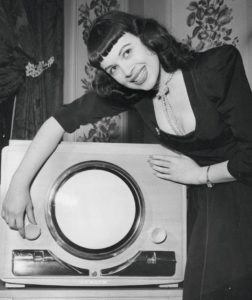Half way though my sophomore year at the University of North Carolina at Chapel Hill my wife, Donna, and I moved from a beautiful apartment on Airport Road into one of the university-owned pre-fabs thrown up after World War II to house returning veterans. It was called Victory Village.
We expecting our first child in May, which meant Donna would have to give up her full-time secretarial job at the School of Nursing, which meant we had to drastically reduce spending, which meant we had to move. Rent on our Victory Village apartment was just $30 a month, including heat. Adjusted for inflation that was like paying $246.80 a month now, cheap by any measure.
***
Nell was an all around good cook, but pound cakes were a specialty, pound cakes and banana pudding and stewed corn, and…
Anyway, we saved the pound cake until we had finished painting, as a reward for finishing. That was a mistake. Occasionally we had cleaned our brushes with turpentine and that beautiful cake had absorbed the odor. It was ruined.
The Good Book
Donna and I didn’t think of ourselves as “poor” when I was in college, we just didn’t have any money.
We bounced a check for less than $3, buying gas. Let me add that was the first, and last, check we ever bounced.
Her parents came to see us every so often and as soon as they drove away Donna would go running for her Bible, flipping through the pages, looking for the $10 bill her Daddy usually left us.
Programming Decisions

Donna’s aunt and uncle, Bub and Ruby Russell, gave us an old TV. Black and white, of course. When it was new, in the late 1940’s or early 1950’s it must have been one of the first TV’s in the neighborhood. The screen was round and 10 or 12 inches in diameter.
In the early 1960’s there weren’t a whole lot of stations to choose from, two maybe, but that didn’t matter much because our TV would only play for 20 minutes before the screen went dark. So before we turned it on we had to decide whether we want to see the first 20 minutes of a program or the last 20 minutes.
We usually watched the last 20 minutes. You could almost always figure out what had happened but you couldn’t always figure out what was going to happen.
Please Pass The Ice
The apartments in Victory Village were warm in the winter but they weren’t air conditioned and summers were hard on everybody.
Summer was especially hard on Annie, a German woman who lived next door. She had married an American soldier who had been stationed in Germany and had come back to the States with him.
The heat and humidity in Chapel Hill were new to her.
I never saw anyone else do what I saw Annie doing one afternoon: she was sitting in front of her refrigerator, door wide open, head inside, trying to cool off.
“Oooh, Joe,” she would say to her husband in heavily accented English. “It is always this hot?”
Coming Monday: Hikers Worry More About Ticks Than Crime